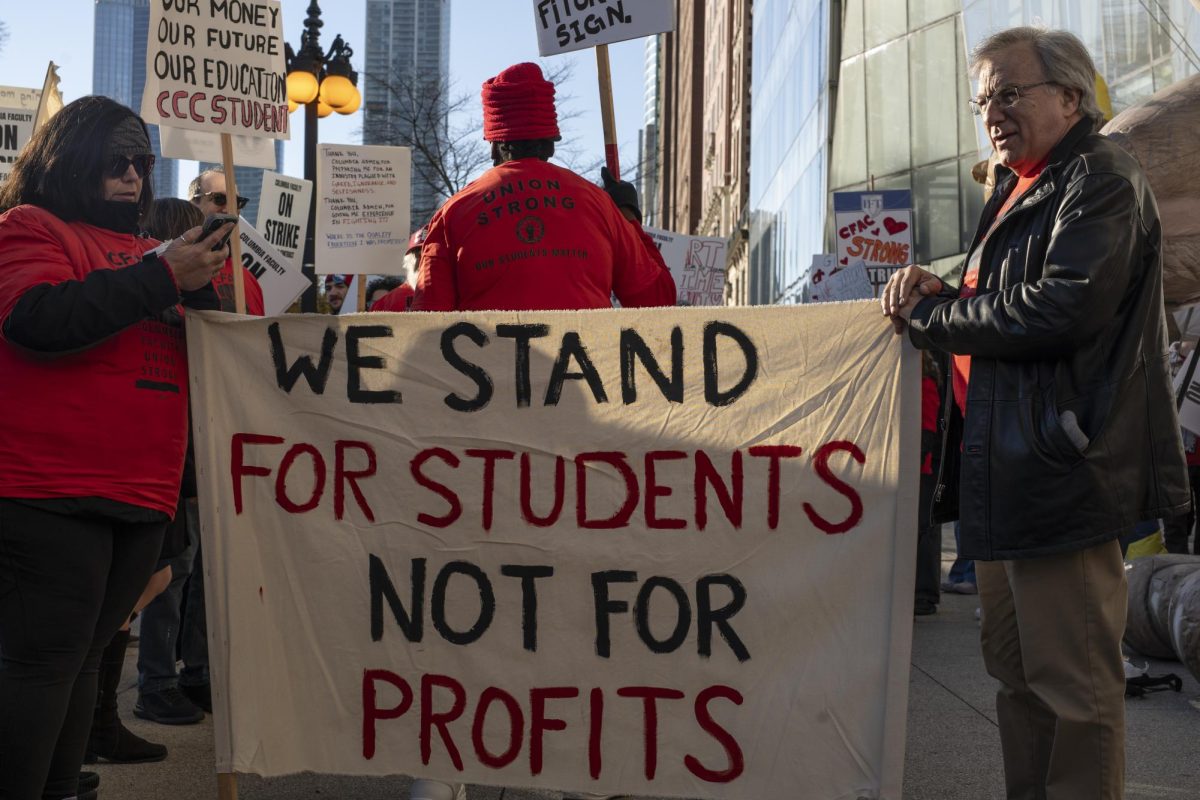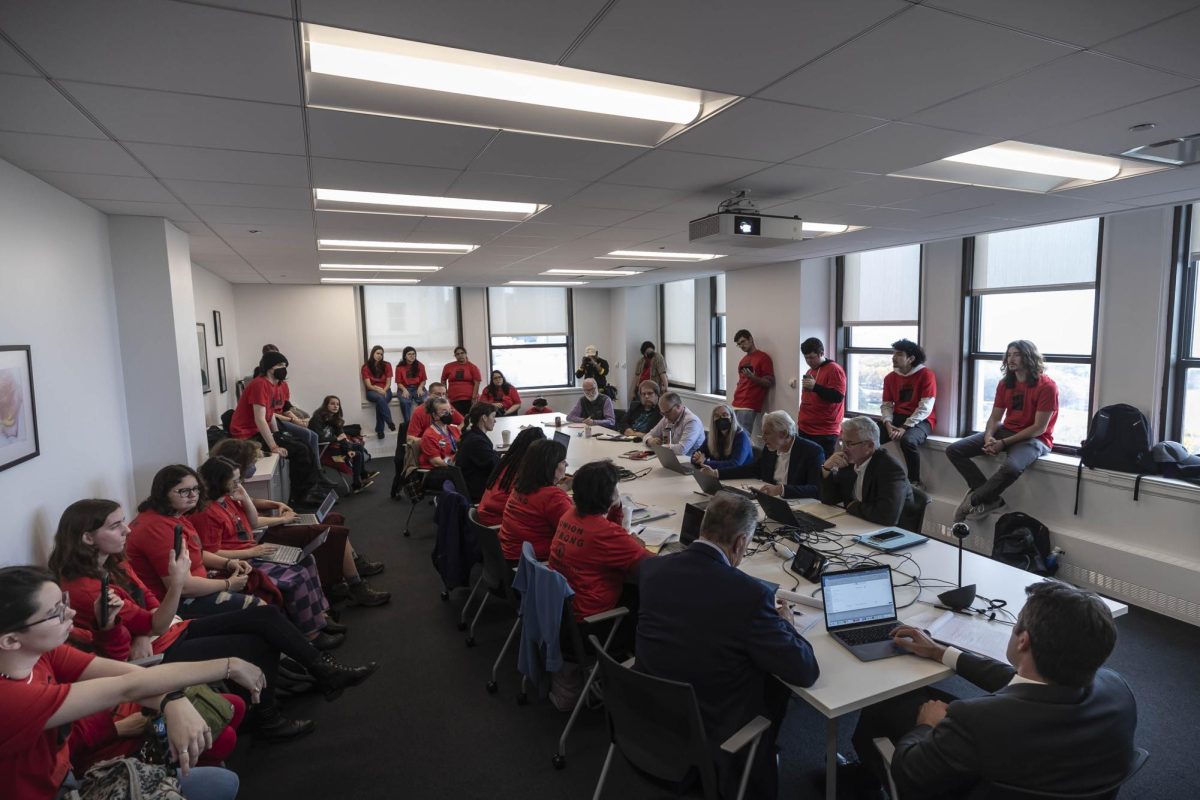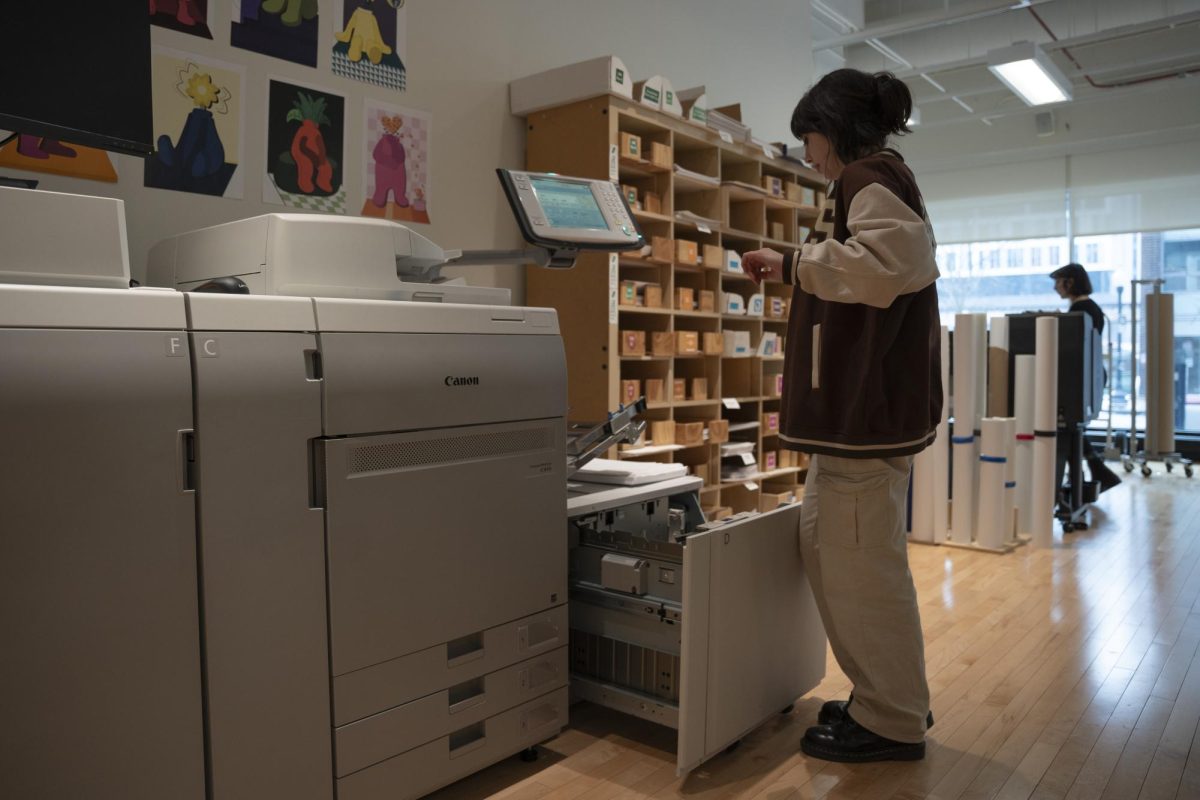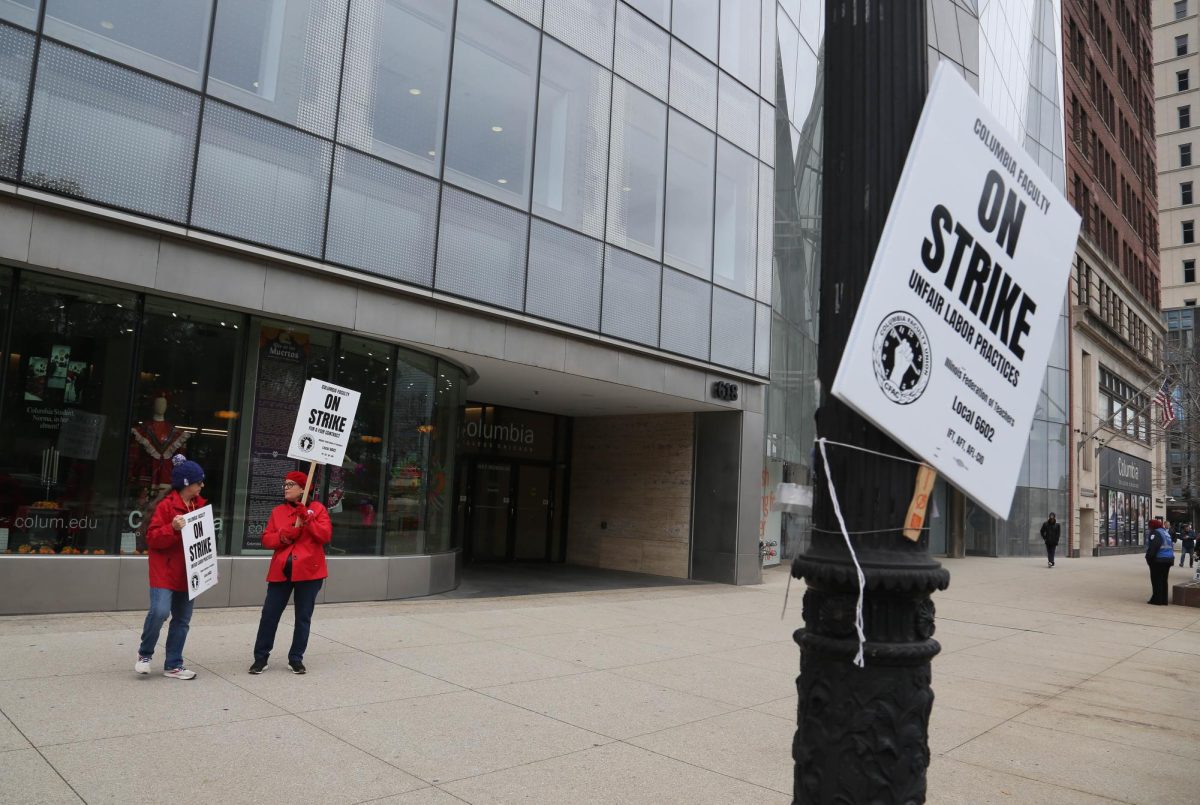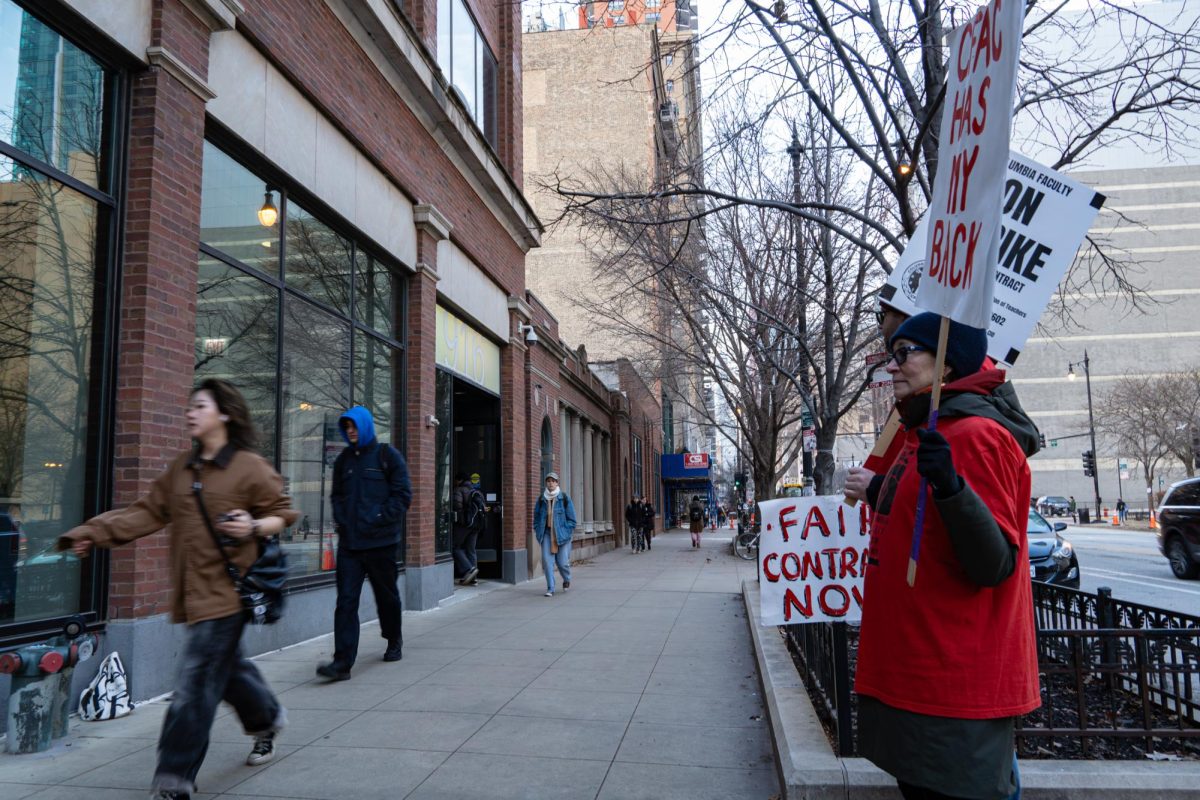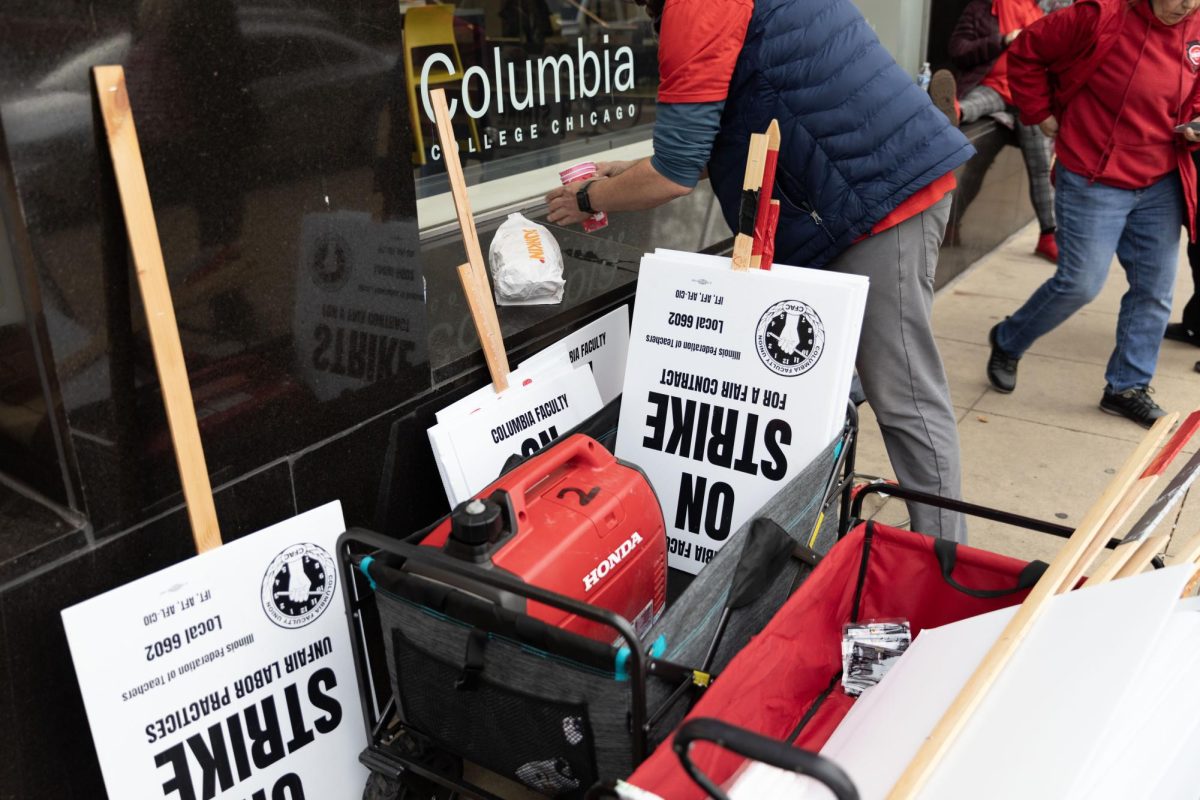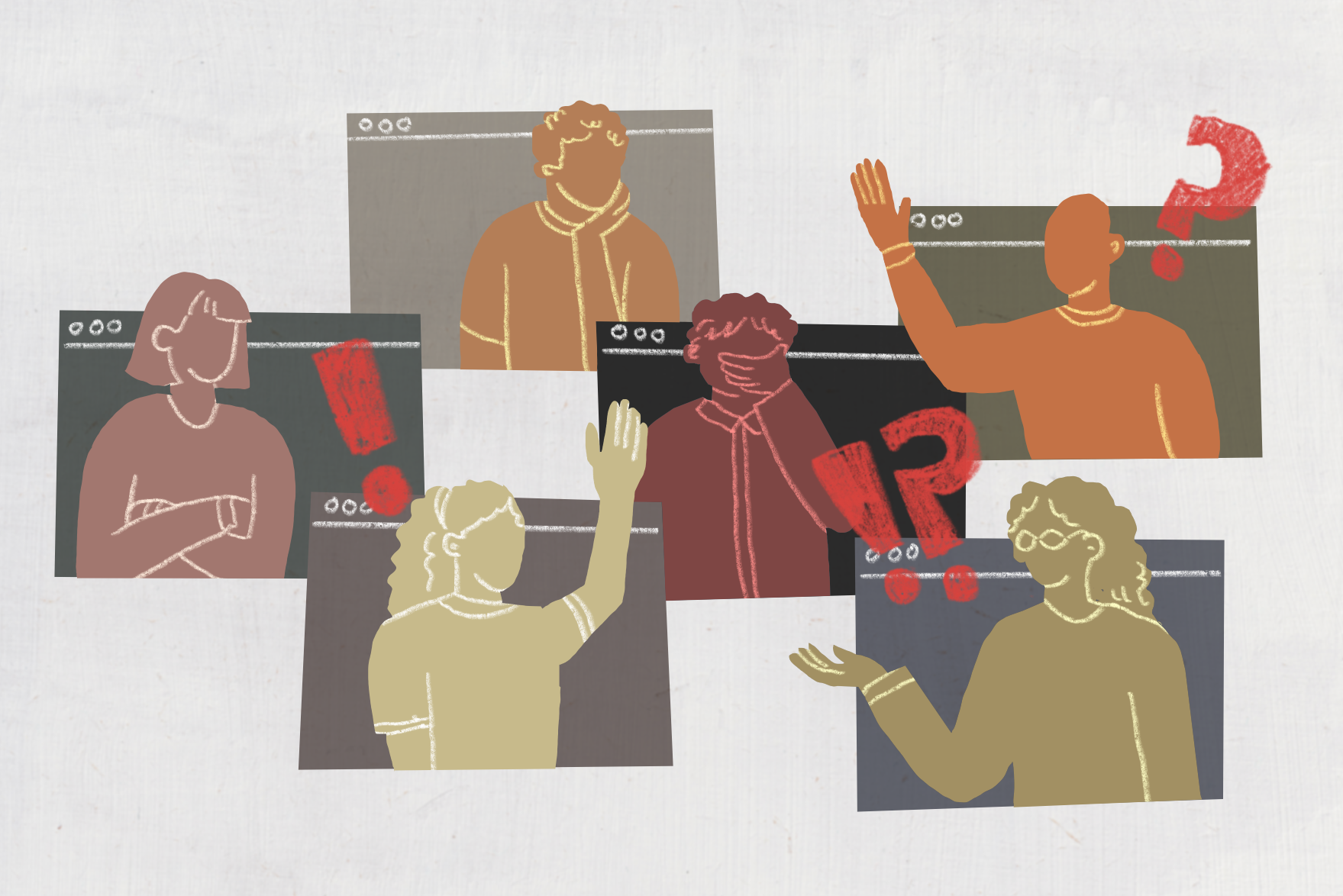
Parents of Columbia students met with administrators this week on Zoom to share their growing frustrations over the length of the now six-week-old strike and how much disruption and uncertainty it has caused their families.
The meeting, which included Senior Vice President and Provost Marcella David, other administrators and about 100 people on Thursday, Dec. 7, came together after a group of parents sent an email requesting “an immediate, direct conversation with the administration due to looming deadlines for decisions regarding enrollment, withdrawal and housing,” said Kym Hampton, whose child is a first year student at Columbia.
The Columbia Faculty Union, or CFAC, which represented 584 part-time instructors at the start of the fall semester, has been on strike since Monday, Oct. 30, over cost-cutting measures the school is implementing to address the $20 million deficit.
The school and union met with a federal mediator but no progress appears to have been made, according to an email update this week from Chief of Staff Laurent Pernot and Terence Smith, Special Counsel Labor Relations.
“Regrettably, mediation between the college and the union bargaining teams to date appears to be yielding the same result as negotiations: continued deadlock on key issues,” according to the email.
The college asked many of the 221 full-time faculty members, as well as staff, to step in to teach for striking part-time faculty who did not return after Thanksgiving break.
Currently, 237 part-time instructors are teaching and 347 remain out on strike, the Chronicle previously reported.
Of the nearly 1,200 course sections offered in the fall semester, about 800 were impacted at the start of the strike, according to David.
Parent Debbie Ellis, whose child is a sophomore, said her biggest concern is “the value of my child’s education.”
“There’s just a lack of respect for the parents and the kids and what they’re going through because a lot of people are really distraught over this situation,”she said. “There’s just so many unknowns that it’s really unsettling to spend so much money on an education — and is it really worth it?”
The meeting with administrators came after parents formed a new, private Facebook group to discuss the strike instead of the public parent group facilitated by the college.
Two parents hosted a meeting via Zoom on Saturday, Dec. 2, and invited parents from the private Facebook group to figure out what information they needed from the college to make decisions about the spring semester. During the meeting, parents came up with talking points to “answer very specific questions” to put in an email to the administration, according to Hampton.
“I had a kid who was thriving and living his best life eight weeks ago. Now he’s struggling, and he is one of many,” Hampton said.
David said she hosted the forum, which included several of the school’s deans, because administration is “trying to be more direct, and have more clarity.”
During the forum, over 15 parents raised their hand to ask questions regarding their concerns. A handful of parents shook their heads in disagreement when administrators were speaking and then challenged them when they had a chance to speak.
The following is a selection of questions and answers from the forum.
When asked about how students are going to make up the learning that was lost due to the strike:
David said lost class time has been factored into spring planning.
“We are thinking about where students are and how to bring students along together so that there are no students who are left behind because they happened to be in a class that was affected by the strike,” David said.
When asked about rumors of false information coming from the union:
“I’m not in a position where I’m going to refer to my colleagues who are part-time faculty as liars or anything of that nature,” David said.
When asked about course-cuts altering lowering Columbia’s quality of education:
David said the college is not alone in its financial struggles and that several other colleges and universities are struggling with “budget shortfalls.” David explained that rather than doing things like closing programs and eliminating whole departments, the college is taking a “streamlining” approach instead.
“The approach that we are taking is to streamline our curriculum and lower the cost of instruction so that it actually matches the tuition revenue and we’re able on an annual basis to be confident that we’re going to be able to continue to serve our students and to be a point of access,” David said.
David said over 65% of Columbia’s classes have 18 students or fewer and that this is something you see at schools “much more expensive” than Columbia. Having that low of a class size at Columbia’s tuition point is an “unsustainable number,” she said.
Columbia’s tuition is $31,026 annually, and 96% of first-year students received scholarships that discounted the rate, the Chronicle previously reported.
When asked about courses required in a major that will no longer be offered for the spring semester:
David said a course or section will not run if it has 50% or less of its expected enrollment.
For example, if a course has a cap of 20 and fewer than 10 students sign up for it, the course would not run.
But she said they will consider a number of other factors, including student interest or need, before making the final decision.
She also noted that not every course is offered each semester.
When asked about refund or withdrawal from a housing contract:
Dean of Students Douglas Eck told parents that unlike most other institutions, Columbia does not own any of the campus buildings and that refunds will always be looked at on a “case-by-case” basis.
Students told the Chronicle they are trying to keep their parents updated, but it’s hard.
First-year film and television major Morgan Lawson said her parents have been having a hard time believing information received from either side.
Lawson and her parents were at the Family Weekend event in October where the union and students protested ahead of the strike and demanded President and CEO Kwang-Wu Kim and David step down.
“I call them once a week to update them,” Lawson said. “They’re not sure that they’re being kept in the loop and I’m not either. It feels like there is some inconsistency and bias from either side.”
Senior illustration major Justine Conde, has been discussing strike updates with their mom. Their mom is “only relying on me” for information, Conde said.
Junior marketing major Sabrina Alejandre said her mom thinks “the strike is ridiculous right now.”
She also questioned the messaging from the school that students are a priority.
“They’ll add in a conversation like, ‘Oh, you know, we care for the students,’ but I don’t really see any actions being done to really show that they care,” she said, explaining her mom’s perspective.
Another Zoom call for parents is planned for next week.
This story has been updated.








